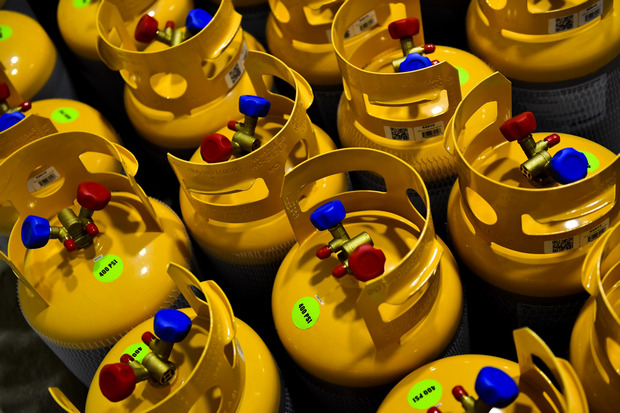Greening refrigeration and air conditioning sector in Georgia

World Refrigeration Day is an international awareness campaign centred around June 26 to raise the refrigeration and air-conditioning sector’s profile and focus public attention on the significant role that the industry and its technology play in protecting the environment and the atmospheric ozone layer. The 2022 theme, #ColdChain4Life, underlines the importance of the refrigerated cold chain in sustaining life.
The United Nations Development Programme (UNDP) and Georgia’s Ministry of Environmental Protection and Agriculture (MEPA) acknowledged the Day by equipping refrigeration and air conditioning (RAC) technicians with modern appliances needed in their work.
Twenty RAC professionals received modern equipment worth EUR23,000 to detect refrigerant leakage, control pressure and temperature in refrigeration systems, and collect and store refrigerant waste. These professionals actively work in the Georgian RAC sector thanks to the training and certification programme supported by UNDP and the Georgian Refrigerant Recovery, Recycling and Reclamation Centre.
The equipment handover was hosted by Georgian Technical University, one of the higher education institutions offering refrigeration and air conditioning training programmes.
At the event, the Association of Refrigerating, Cryogenic and Air Conditioning Engineers presented its annual report and awarded honorary diplomas to the distinguished sector specialists.
The event wrapped up activities implemented by UNDP with funding from the Multi-Lateral Fund to the Montreal Protocol to help Georgia phase out harmful substances threatening the atmospheric ozone layer. Working in close partnership with Government, educational institutions and the private sector, the programme assisted to drive the change toward an environment-friendly refrigeration and air conditioning industry in Georgia.
Some of the programme achievements include:
- Hydrochlorofluorocarbons (HCFCs) consumption froze in 2013.
- Imports of the R-22 refrigerant fell to a record level of annual 15.5 tons in 2020.
- A ten-year action plan guided the phase-out of ozone-depleting substances in 2011-2021.
- Legislative changes and a new system of import quotas were introduced to limit the use of ozone-depleting substances.
- In 2021, the Georgian Public Broadcaster replaced its outdated climate control system with ozone-friendly air conditioning. Up to 130 kilograms of the R-22 refrigerant have been removed under this pilot project alone.
- Many Georgian companies and organizations switched to ozone-friendly equipment.
- Two refrigerant recycling centres were established, and 20 refrigeration service companies were equipped with refrigerant recovery machines, refillable refrigerant cylinders and portable refrigerant leak detectors.
- A range of vocational education colleges introduced training courses in refrigeration and air conditioning.
- Educational materials were created for refrigeration and air conditioning technicians, customs officers and environmental inspectors.
- Over 800 refrigeration and air conditioning technicians were trained in safe equipment handling, national regulatory and policy frameworks related to ozone-depleting substances and alternative technologies and energy efficiency measures.
- Up to 150 air conditioning and refrigeration technicians were certified under the newly established certification system.
- Up to 300 customs officers and environmental inspectors were trained in the identification of refrigerants and detection of illegal imports and misuse.
- Consultants of the largest home appliance stores participated in professional training on safe refrigeration technologies.
- The Revenue Service of the Ministry of Finance and the Department of Environmental Supervision of the Ministry of Environmental Protection and Agriculture received up-to-date equipment, including refrigerant identifiers and portable refrigerant leak detectors.
UNDP will continue supporting Georgia to phase out ozone-depleting substances by 97.5 percent by 2030. As the country achieves this ambitious goal, only 2.5 percent of the baseline consumption of ozone-depleting substances will be still in use for servicing purposes throughout the next ten years (2030-2040).
